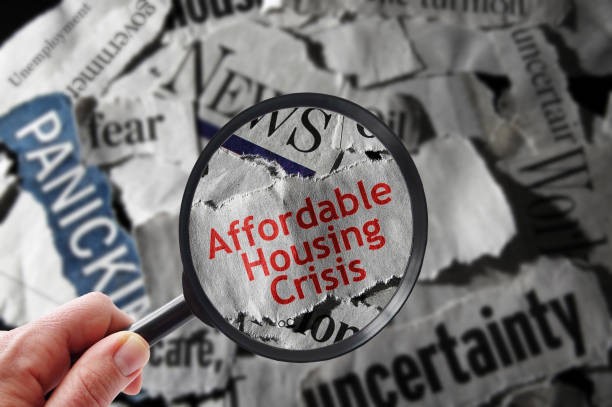A Look at the Urban Housing Affordability Crisis from an Economic Point of View

The problem with housing costs is that there aren’t enough houses for everyone who needs one, causing a supply and demand issue where demand has far surpassed supply. Rapid urban population expansion, which is caused by people moving to cities for work, has pushed the demand for housing in large cities to rise. But supply hasn’t been able to keep up because of strict zoning restrictions, great land prices, and protracted approval times. In cities like Sydney and San Francisco, laws concerning how tall buildings can be, how to protect historic buildings, and how many people can live in a building have made it harder to create high-density housing. This has made it harder to find inexpensive homes. It is important to note that property values in Sydney (New South Wales) have increased by 9.6% from last year, indicating steep increase in price level, increasing the gap in equity.
Due to the fact that there aren’t enough homes in developed countries, property and rental prices increase up. This makes living in such countries (particularly in denser cities) more expensive and the gap between wealthier and poor bigger. A lot of individuals can’t afford to buy a house, so they rent for a long period. This, in turn, boosts rents, especially in the city core, which lowers disposable income and raises household debt. In Australia, for instance, mortgage payments on homes that are priced in the middle currently take up more than 40% of a normal household’s income. This is substantially higher than the 30% benchmark of affordability that is typically quoted.
The housing affordability dilemma is equally bad for the job market, causing an effect beyond just the real estate market. Workers have to either move or spend more time commuting to work if they can’t afford to live close to their jobs. This makes the economy less efficient since it makes it difficult for people to find work and causes a shortage of workers in essential professions like teaching, nursing, and hospitality. It also stops younger, more mobile workers from coming to cities, which could hinder growth and innovation in the long run.
Some politicians have developed and acted demand-side solutions like giving first-time house purchasers grants or tax advantages. But these often make things worse by giving individuals more money to spend without fixing the supply difficulties that are generating the problem. Changes to the supply side, such making zoning restrictions less strict, encouraging high-density building near public transportation, and making it simpler to get things approved, are a better long-term option. Government efforts to develop inexpensive and social housing can also help with the long-term housing shortage.
Taxes could also be a way to get things done. Some individuals claim that tax regimes in places like Canada and Australia are good for property investors because they offer things like negative gearing and lower capital gains taxes. If these incentives were changed, people might stop investing in risky real estate and start putting their money into sections of the economy that are more productive.
In the end, the lack of affordable housing in cities is not only a real estate dilemma – it is a macroeconomic one that impacts a lot of people. To address it, urban planning, taxes, and housing policy will all have to work in cohesion. If left unaddressed, there is a possibility such an issue might make things worse for individuals of all ages, make it difficult for people to switch jobs, and weaken the economy. Ensuring that everyone can afford to reside in cities as they grow should be a major objective for long-term and inclusive economic growth.
– By Marko Markovic
